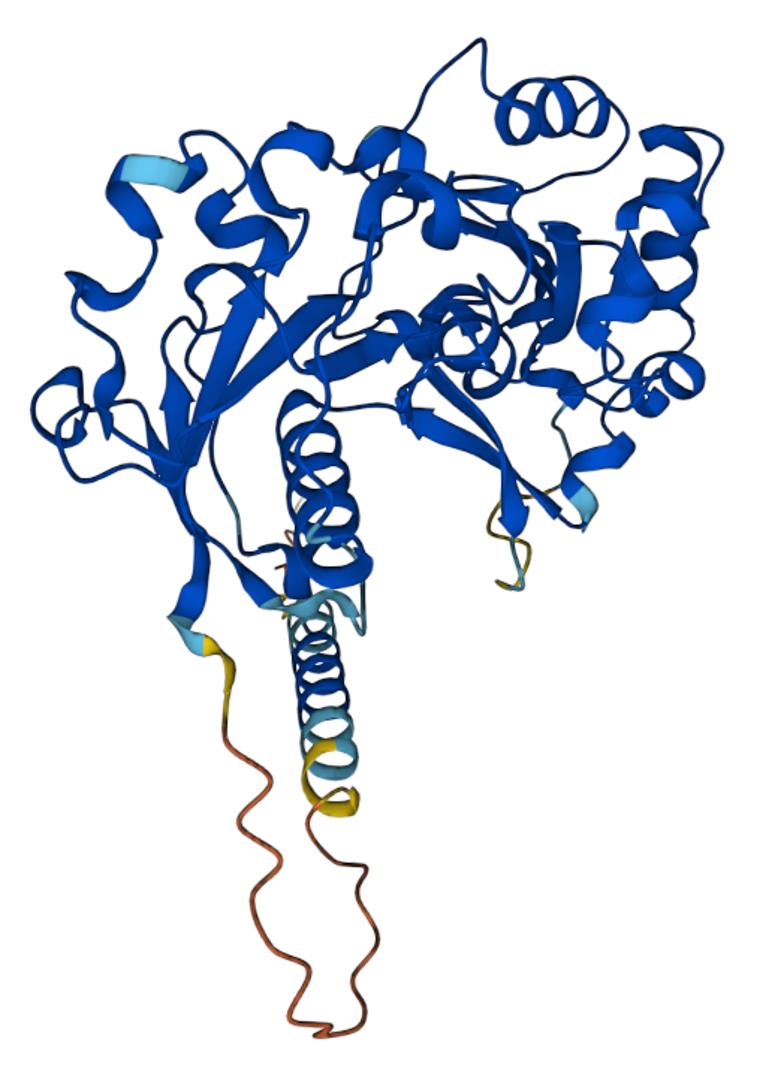Creative Biolabs is a CRO solution company founded and managed by a team of scientists and experts with extensive knowledge and experience in cell therapy research and development. We are dedicated to providing the best products and services to clients worldwide in the academic and industrial sectors, assisting in the pursuit of breakthrough scientific discoveries to effectively advance preclinical and clinical research.
Lewis Y tetrasaccharide, also known as Lewis Y or LeY, is a carbohydrate antigen that falls under the Lewis blood group system. It comprises a fucose residue attached to an oligosaccharide chain of type 2. This chain consists of galactose and N-acetylglucosamine linked by a beta-1,4 glycosidic bond. LeY is present on the surface of different cells and tissues, including red blood cells, epithelial cells, endothelial cells, and some immune cells. Its roles in biological processes such as cell adhesion, inflammation, angiogenesis, and tumor progression are significant. LeY plays a crucial part in several biological processes that are essential for cancer cell growth and seeding, such as cell adhesion, differentiation, migration, and signaling. It interacts with various receptors and ligands such as selectins, galectins and antibodies. LeY has been linked to numerous diseases like cancer, inflammation and infection.
 Fig.1 Structure of LeY
Fig.1 Structure of LeY
LeY is involved in regulating various signaling pathways that contribute to cancer progression, including the transforming growth factor beta (TGF-β) pathway. This pathway has a dual function in cancer, acting as either a tumor suppressor or promoter depending on the cellular context. TGF-β signals through two transmembrane receptors - TGF-β receptor I (TβRI) and TGF-β receptor II (TβRII), which activate downstream effectors like Smad, ERK/MAPK and PI3K/Akt.
LeY has the ability to modulate the TGF-β pathway by altering the expression, structure, and function of TβRI and TβRII. Studies indicate that LeY can enhance ERK and Akt phosphorylation, which is associated with cell proliferation and survival. Additionally, it inhibits Smad2/3 phosphorylation involved in growth inhibition and apoptosis. Furthermore, LeY affects the interaction between TβRI/TβRII ligands or antibodies by changing receptor glycosylation status. Therefore, LeY may act as a positive regulator of the TGF-β pathway in ovarian cancer cells promoting their growth and survival. It may also influence other signaling pathways related to cancer development such as selectin-mediated adhesion pathway and Wnt/ β-catenin pathway. As a potential biomarker for ovarian cancer diagnosis and treatment target, LeY holds significant therapeutic value.
Four clinical trials have been conducted on LeY-targeted chimeric antigen receptor (CAR) cell therapies. The first trial, published in 2013 by Ritchie et al., demonstrated the biological activity of second generation CD28-ζ CAR-T cells against the Lewis Y antigen in acute myeloid leukemia (AML) patients. Although limited efficacy was observed, this study is significant as it showed that CAR-T cells can be biologically active in AML patients without causing hematopoietic toxicity.
Currently, all FDA-approved CAR cell therapies are only used to treat hematologic malignancies and not solid tumors. However, recent research has shown that LeY is highly expressed, mutated, and amplified in most solid organs. This makes it a potential target for CAR therapy in the treatment of solid cancers such as lung cancer, liver cancer, and breast cancer. Two clinical trials are currently underway to explore the efficacy of this approach.
Table 1. Ongoing LeY-Targeted CAR Cell Therapy Clinical Trials
| NCT Number | Title | Status | Conditions | Phases | Sponsor/Collaborators |
| NCT03198052 | GPC3/Mesothelin/Claudin18.2/GUCY2C/B7-H3/PSCA/PSMA/MUC1/TGFβ/HER2/Lewis-Y/AXL/EGFR-CAR-T Cells Against Cancers | Recruiting |
Lung Cancer Cancer Immunotherapy CAR-T Cell |
Phase 1 |
Second Affiliated Hospital of Guangzhou Medical University/ Hunan Zhaotai Yongren Medical Innovation Co. Ltd./ Guangdong Zhaotai InVivo Biomedicine Co. Ltd. |
| NCT03851146 | A Study of Anti-Lewis Y Chimeric Antigen Receptor-T Cells (LeY-CAR-T) in Patients With Solid Tumours | Completed | Advanced Cancer | Phase 1 | Peter MacCallum Cancer Centre, Australia |
| NCT04842812 | Engineered TILs/CAR-TILs to Treat Advanced Solid Tumors | Recruiting |
Liver Cancer Lung Cancer Breast Cancer |
Phase 1 |
Second Affiliated Hospital of Guangzhou Medical University/ Guangdong Zhaotai InVivo Biomedicine Co. Ltd |
| NCT01716364 | Safety Study of Anti LewisY Chimeric Antigen Receptor in Myeloma, Acute Myeloid Leukemia or Myelodysplastic Syndrome | Unknown |
Multiple Myeloma Acute Myeloid Leukaemia Myelodysplastic Syndrome |
Phase 1 | Peter MacCallum Cancer Centre, Australia |
References
For any technical issues or product/service related questions, please leave your information below. Our team will contact you soon.
All products and services are For Research Use Only and CANNOT be used in the treatment or diagnosis of disease.
 NEWSLETTER
NEWSLETTER
The latest newsletter to introduce the latest breaking information, our site updates, field and other scientific news, important events, and insights from industry leaders
LEARN MORE NEWSLETTER NEW SOLUTION
NEW SOLUTION
CellRapeutics™ In Vivo Cell Engineering: One-stop in vivo T/B/NK cell and macrophage engineering services covering vectors construction to function verification.
LEARN MORE SOLUTION NOVEL TECHNOLOGY
NOVEL TECHNOLOGY
Silence™ CAR-T Cell: A novel platform to enhance CAR-T cell immunotherapy by combining RNAi technology to suppress genes that may impede CAR functionality.
LEARN MORE NOVEL TECHNOLOGY NEW SOLUTION
NEW SOLUTION
Canine CAR-T Therapy Development: From early target discovery, CAR design and construction, cell culture, and transfection, to in vitro and in vivo function validation.
LEARN MORE SOLUTION